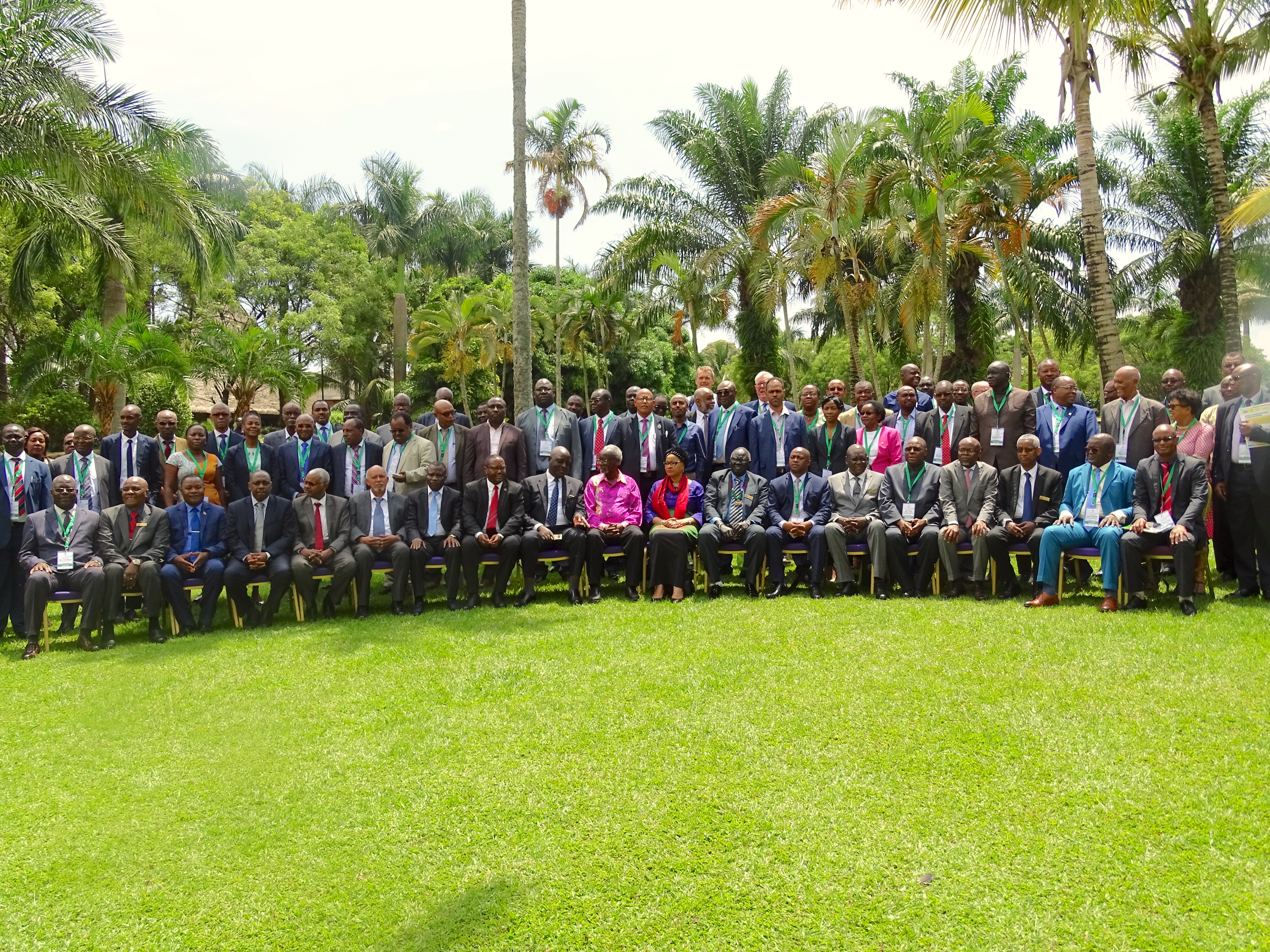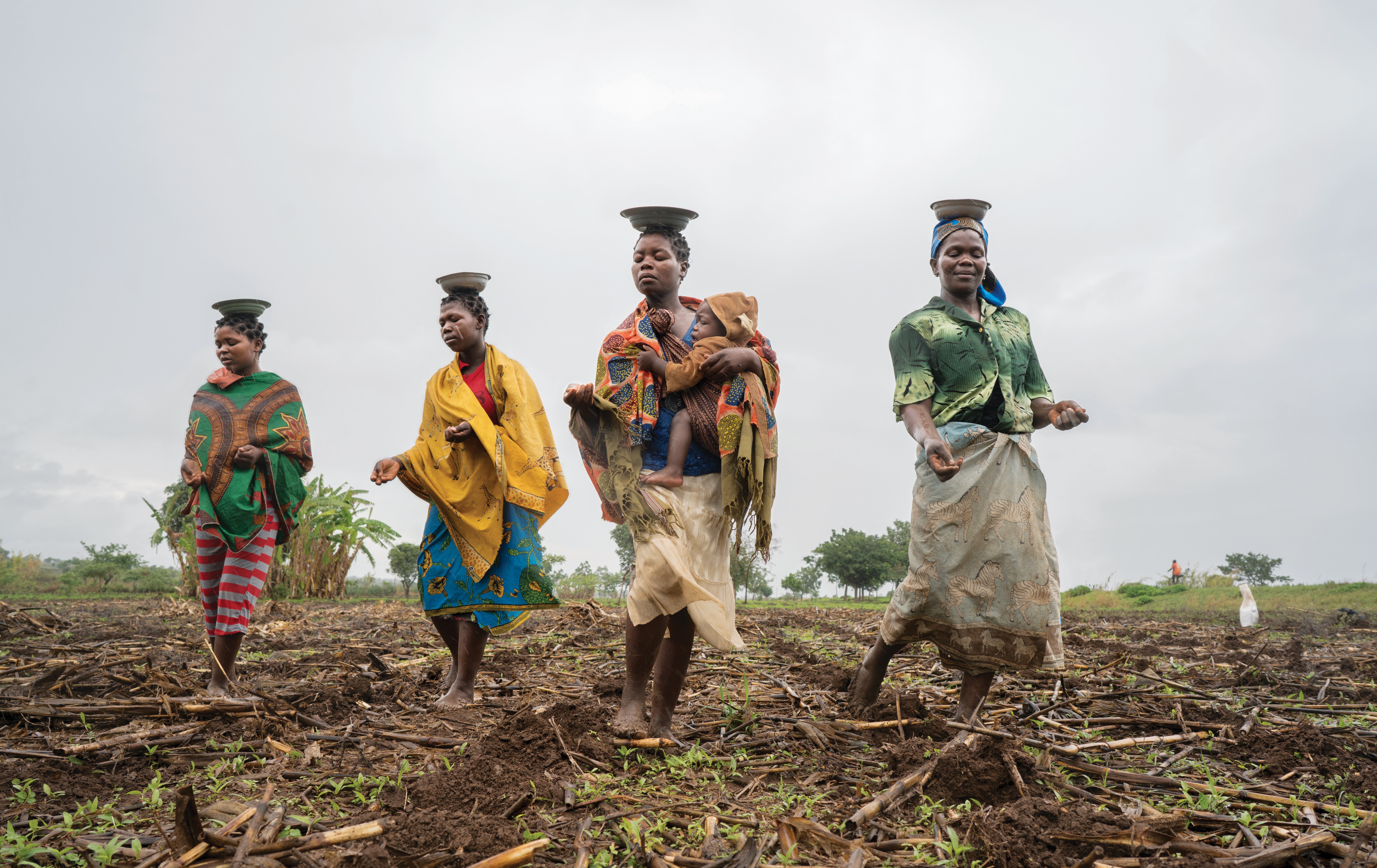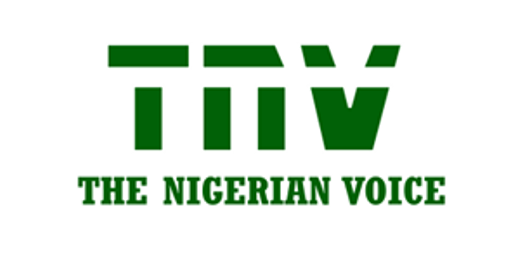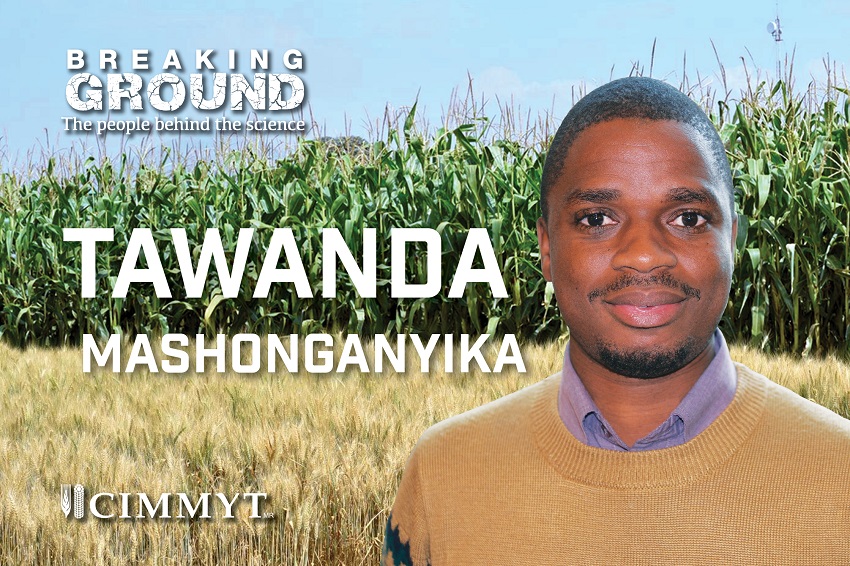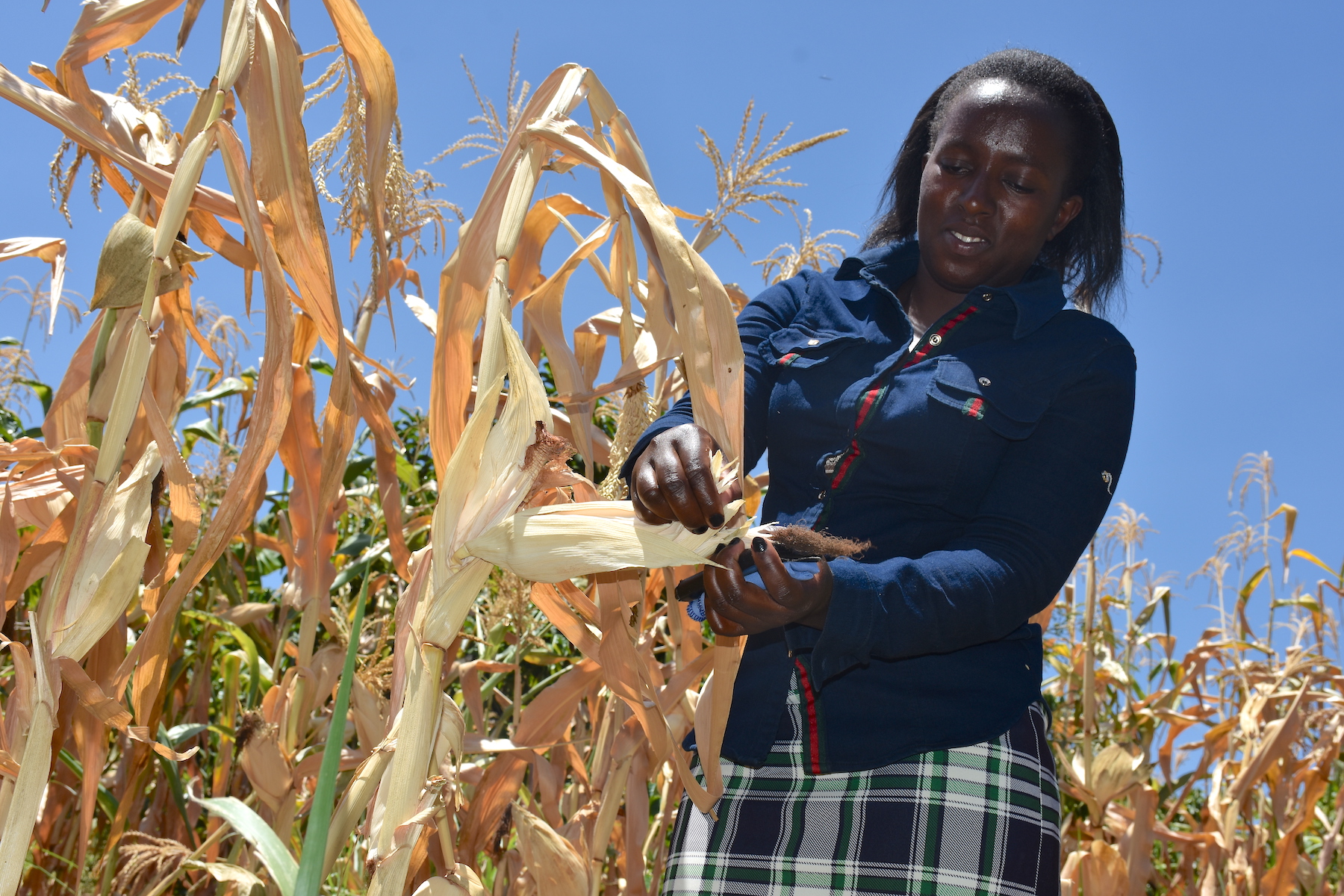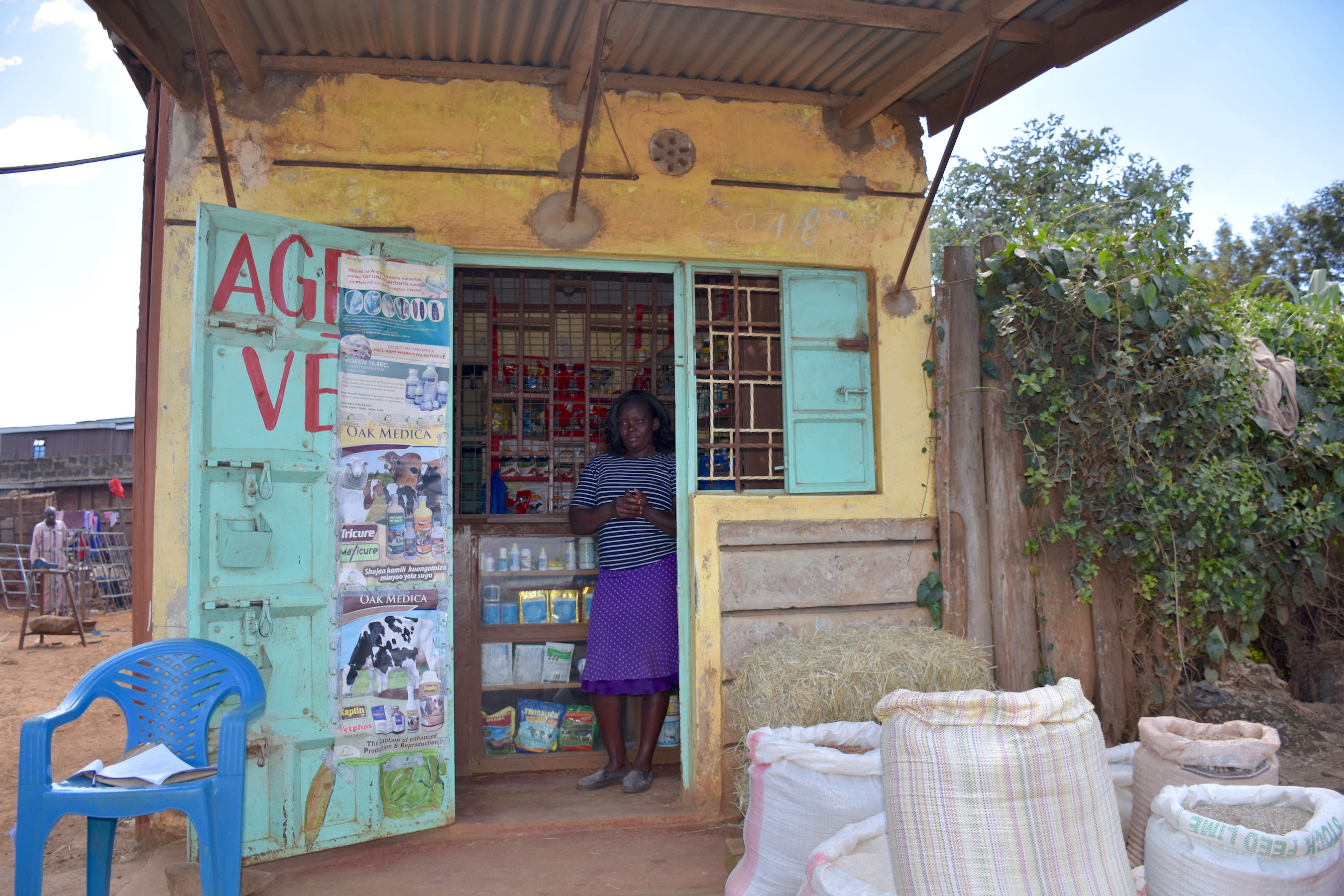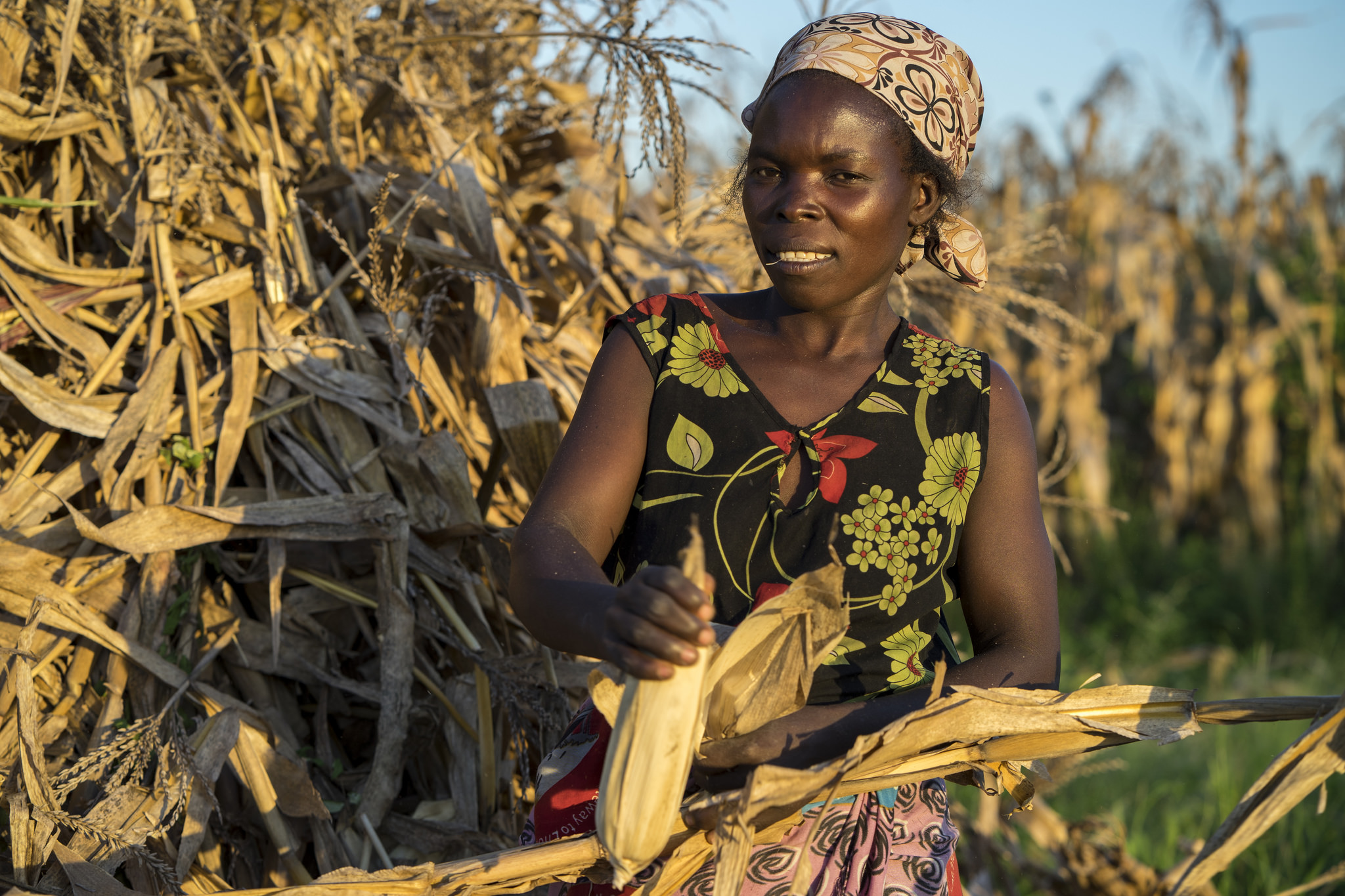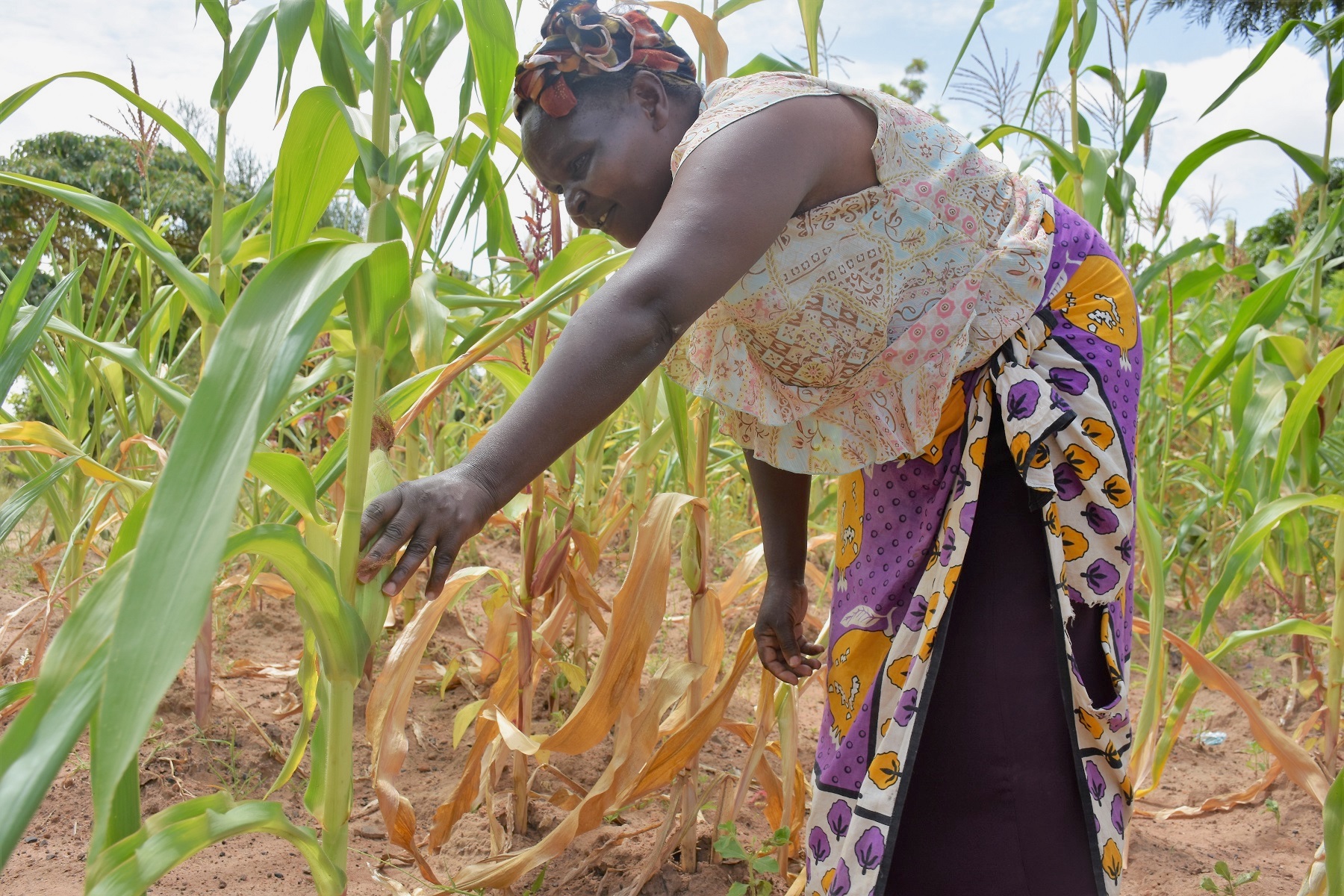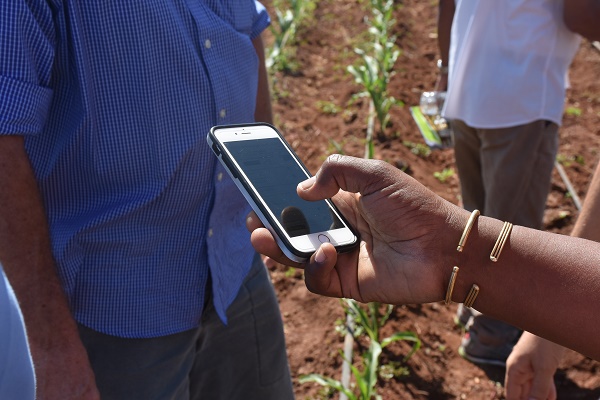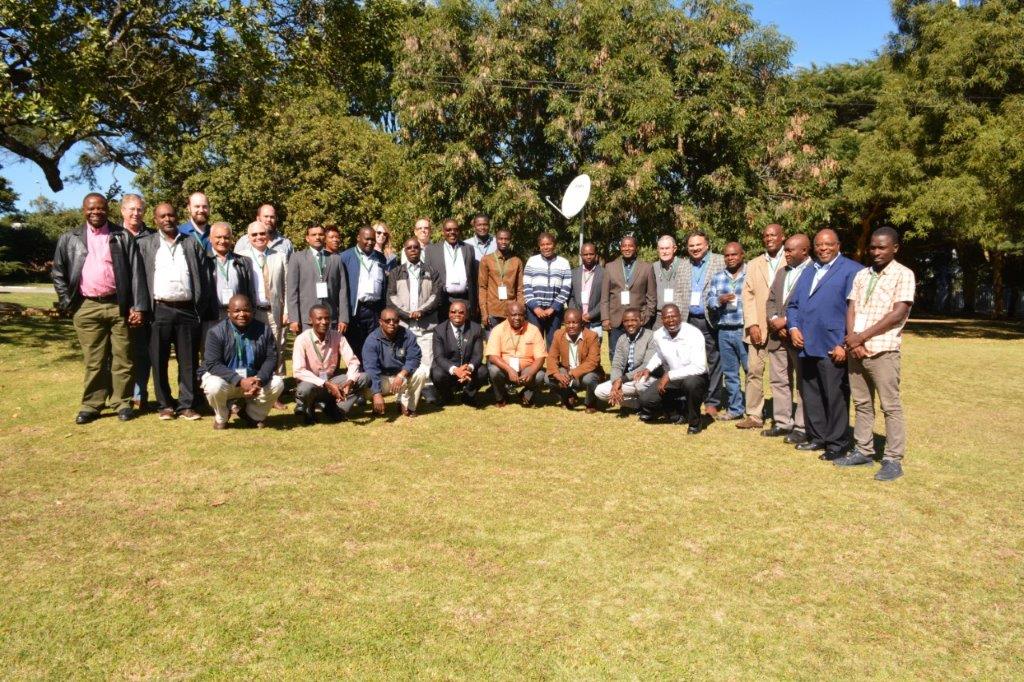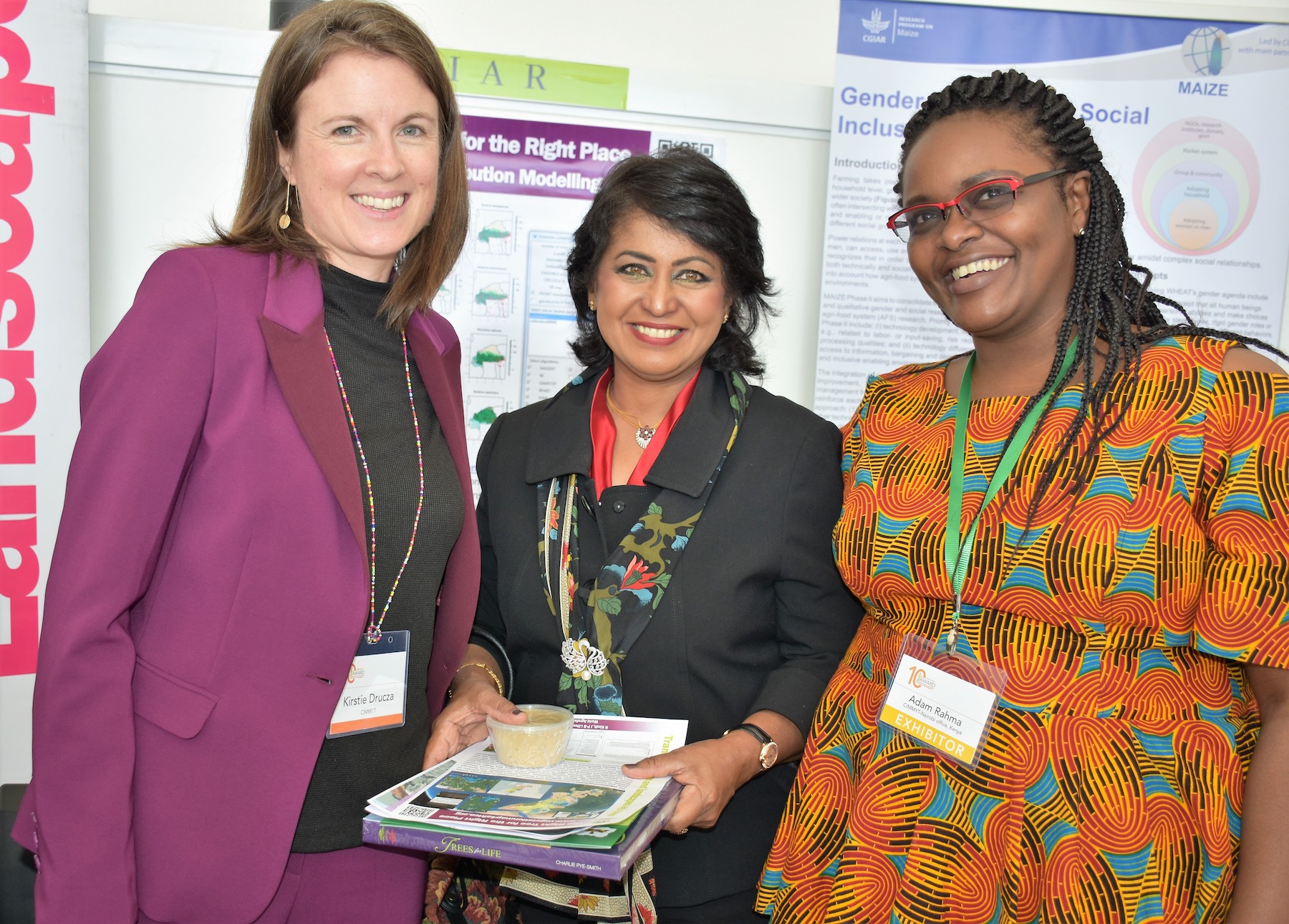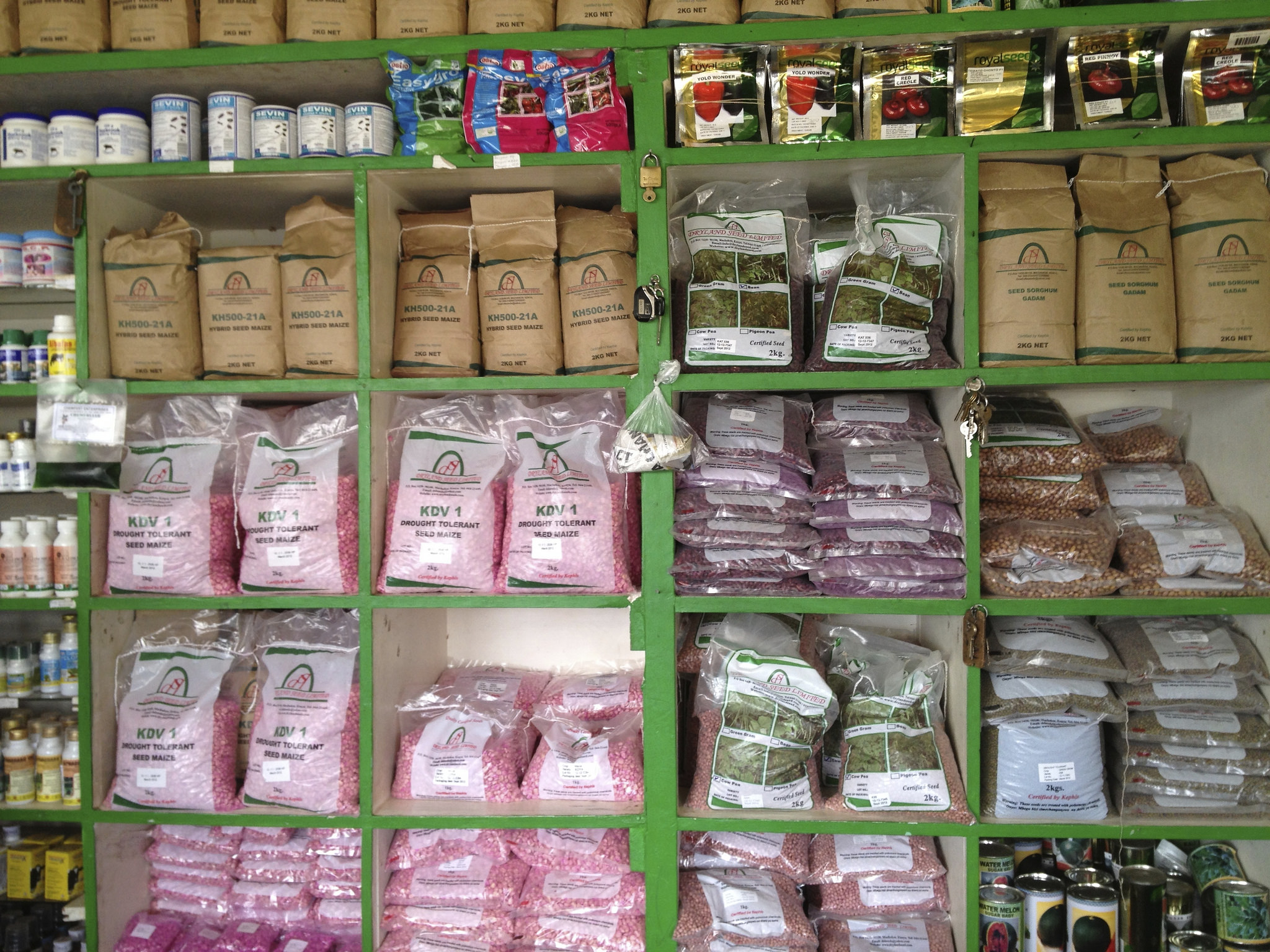Kenya
For more information, contact CIMMYT’s Kenya office.
Conservation agriculture works for farmers and for sustainable intensification
 Climate adaptation and mitigation
Climate adaptation and mitigation
Agriculture leaders of eastern and southern Africa encourage wider adoption of conservation agriculture for the benefit of farmers, consumers and the environment.
Book launch: Lead farmers in eastern and southern Africa
 Climate adaptation and mitigation
Climate adaptation and mitigation
A new book draws on experiences of men and women farmers across eastern and southern Africa who bravely embraced change to improve their farming methods and the lives and livelihoods of their families.
Transforming African agriculture through mechanization
 Innovations
Innovations
Source: The Nigerian Voice (3 May 2019)
The FACASI project has benefited over a hundred young people from Ethiopia, Kenya, Tanzania and Zimbabwe.
Kenyan scientist urges African countries to adopt drought tolerant crops
 Nutrition, health and food security
Nutrition, health and food security
Source: Xinhua News (17 Apr 2019)
Stephen Mugo said that greater adoption of drought tolerant seeds combined with improved soil and water management is key to cushioning African small-holders from hunger and malnutrition.
Breaking Ground: Tawanda Mashonganyika unites crop breeders and market experts for more impactful varieties
 Climate adaptation and mitigation
Climate adaptation and mitigation
He supports breeders to design new varieties focused on replacing older products in a specific market.
Ministry decries decline in food production
 Nutrition, health and food security
Nutrition, health and food security
Source: KBC (3 Apr 2019)
Stephen Mugo says there is a need to mechanize agriculture for improved production.
Exploring young Africans’ role and engagement in the rural economy
 Capacity development
Capacity development
How important is farming relative to non-farm activities for the income of young rural Africans?
Solving the “last mile” challenge of maize seeds
 Nutrition, health and food security
Nutrition, health and food security
Reaching even the most remote corners of Africa, agrodealers give farmers access to agricultural inputs and services.
How gender equity and social inclusion are improving the lives of rural families in Africa
 Gender equality, youth and social inclusion
Gender equality, youth and social inclusion
Women have the potential to be drivers of agricultural transformation.
Drought-tolerant hybrid seed offers farmers reprieve from hunger
 Capacity development
Capacity development
Farmers are reaping the benefits of SAWA hybrid, an improved maize seed variety designed to withstand drought conditions.
Seeds go digital
 Innovations
Innovations
Faster and better-quality certification, a game-changer for African farmers?
International Maize Improvement Consortium for Africa ramps up seed innovations
 Capacity development
Capacity development
CIMMYT launched the consortiumin May 2018, to better engage with a committed set of partners and to achieve enhanced maize yields in Africa.
CIMMYT celebrates AWARD’s ten years empowering African women in agricultural research
 Capacity development
Capacity development
The AWARD program advocates for a more gender-responsive agricultural research ecosystem.
Screening cycle for deadly MLN virus set to begin in Kenya during 2019
 Nutrition, health and food security
Nutrition, health and food security
The maize lethal necrosis (MLN) artificial inoculation screening site in Naivasha, Kenya, will begin its phenotyping (screening/ indexing) cycle of 2019 at the beginning of January 2019 and in other four intervals throughout the year. Interested organizations from both the private and public sectors are invited to send maize germplasm for screening.
Q&A: Expanding CIMMYT’s research agenda on markets and business
 Nutrition, health and food security
Nutrition, health and food security
CIMMYT economist Jason Donovan discusses the role of seed companies and food markets.
